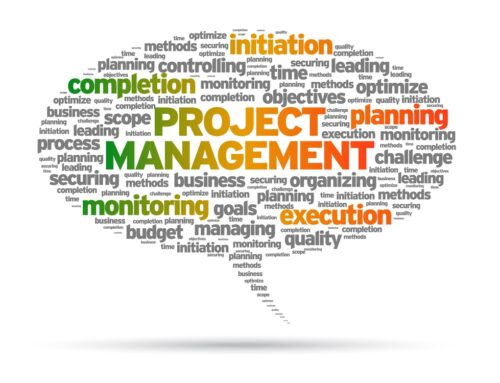Project managers in IT live in a world of esoteric technologies, constant change and difficulty providing a value proposition to management. Project results are often not just the construction of a physical asset for the company but the creation of systems whose performance is the ultimate deliverable. Here are 10 IT essential project management skills needed to keep afloat:
1. Speaking the Right Language
The right language, idioms and terminology convey the PM’s intelligence, know how and a willingness to seek understanding. These types of communication skills encourage IT personnel to go the extra mile in return. Especially important is a sense of humor — a lack of humor can be seen as a defense, behind which might be hidden competence issues, lack of respect for IT goals or simply a desire to dominate discussions.
2. The Right Kind of Project Leadership Skills
Project management is a leadership role, not a source of rigidity. The PM can act as a subject matter expert in a valuable process and welcome process questions. They can provide coaching to project team members to help them use the project management process to leverage their own technical skill set towards meaningful goals.
3. Active Negotiation Skills and Accountability
A successful project manager needs to be a real-world negotiator with a propensity towards critical thinking. Are there unanticipated delivery issues such as power requirements, regulatory issues or technical compatibility? Are those miles of cable being ordered at a good price actually poorly shielded? After delivery, the PM has to have processes in place to establish accountability independent of the end result. Acceptance testing is one way to accomplish this.
4. Completion Vision: Understand IT Architecture and Standards
The PM needs to be familiar with recent IT platforms and methodologies in use and understand how this project is going to meet company needs. If the project involves SSD storage and an in-memory database, the PM should grasp what that will provide for the company’s operation and how it is different from petabytes of storage for “big data” analysis.
5. Cross-Discipline Business Case Writing
In addition to understanding the basic principles behind the project’s goals, the PM should be able to write clear business case descriptions to communicate with company management. One of the key resources that PMs manage as part of an IT project is senior management goodwill and support for what is likely to be an expensive, difficult-to-understand company resource. A key skill for PMs is explaining the ROI, expected KPIs and other concrete values in understandable but not condescending terms. A discussion of futures can also help — are the servers upgradeable? Is the infrastructure expandable? Will this all be replaced by cloud-based resources before the end of its expected lifetime?
6. Agile Scheduling Skills
Agile software development has shown that rigid structures can be replaced with clear but responsive iterative processes. There are enough moving targets in IT project management that Agile scheduling can help an effective project manager to guide the project even as resource shortages, standards changes, infrastructure issues, personnel availability and company goals make it difficult to keep promises to management. Using the paradigm of “user stories” from Agile software development can help organize project scheduling for an Agile approach.
7. Broad Meeting Management Skills
Today’s IT projects can involve personnel from around the globe. Project meetings can be a combination of in-person, audio and video connections and may require coordinating schedules that may be 12 hours out of phase with the project location. The project manager needs to be able to work with the geographic disparity, different work cycles sometimes forcing delays in communication and even cultural differences in understanding what has been agreed upon and how work should proceed.
8. IT Quality Management Metrics
An important part of any IT project is the quality metrics that the resulting systems will meet. The PM should understand what those metrics are and how the systems and software are designed to meet them. Savings in the wrong part of the project could make a much bigger difference than anticipated when it comes time to test performance — for example, failure to inspect network cable to ensure it is not substandard could result in storage underperformance at a later date or web server unreliability.
9. Earning Respect: Make Difficult Decisions
The PM should have a reputation for making difficult, well-informed decisions. This will help the PM earn trust of both management and technical contributors. Especially valuable PMs with problem solving skills can step back and look at the big picture, finding a creative solution to intractable complication.
10. Roadmap-Oriented
The PM should have the company’s IT roadmap at hand, even if this project is a small or isolated part of the whole. Understanding the company’s technological philosophies and goals and the ways the current project life cycle might affect future directions can help to advocate for the project with management at important times.
About the Author: EIRE Systems
EIRE Systems is a leading independent provider of professional IT, AV and Access Security services to the financial, insurance, manufacturing, health care, retail, construction, hospitality, commercial real estate, legal, educational and multinational sectors in Japan and throughout the Asia Pacific region. EIRE Systems has expertise across a wide spectrum of Information Technologies, with a track record for successfully completing hundreds of assignments since its establishment in 1996.



